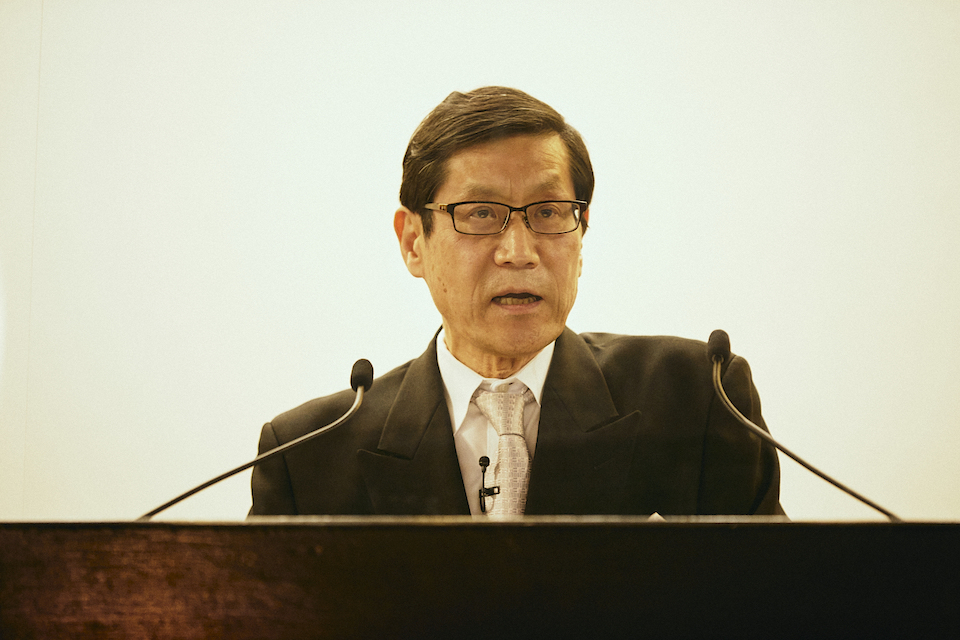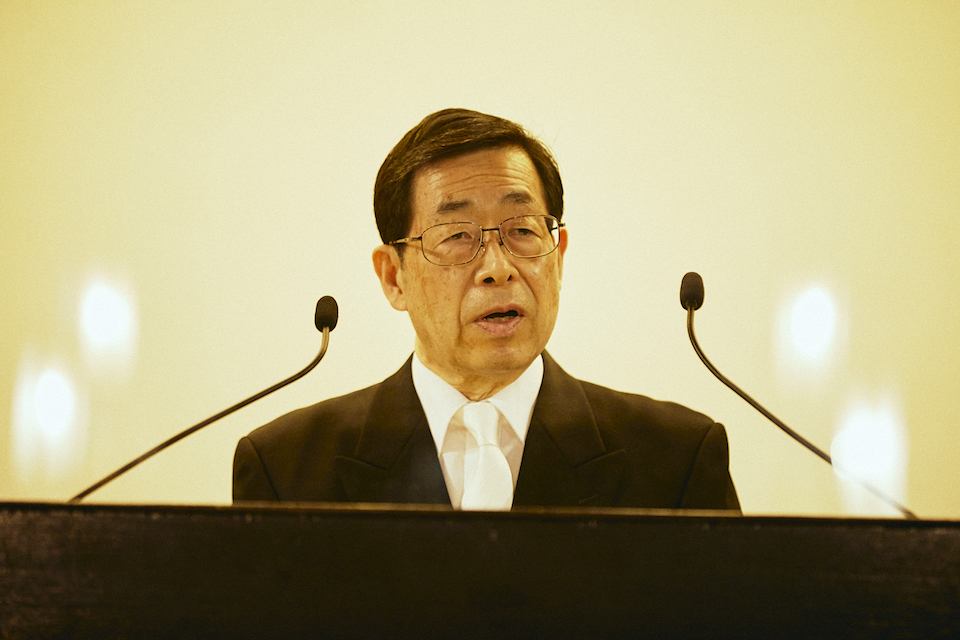Graduation and Commencement Ceremonies Ceremonies of 2021
I extend my heartfelt congratulations to each of this year’s graduates, and to their parents and guardians.
The COVID-19 pandemic that has raged across the world since the spring of 2020 still shows no sign of abating. For two years now, everyone worldwide has been groping in the darkness, considering what we will be able to do once the situation becomes a little better.
Those of you graduating this year had to spend the last two years of your college life alongside COVID-19. I’m sure many of you had plans for study abroad and many other activities during the latter half of your college career. I am also sure that your club and job-hunting activities too were greatly affected. I am very sorry that the University was unable to take sufficient measures to prevent such unfortunate deviations from the campus life you had envisioned.
From another viewpoint, however, you are all in the exceptional situation of having had the valuable experience of being part of two Universities: one in the time before COVID-19 emerged, and one that was forced to rapidly transform itself in response to the pandemic. Experiencing both should give you a broader perspective than what you would have obtained by experiencing the same thing during your entire time here. What makes the experience of studying abroad at a young age so valuable is that it allows you to see Japan and other countries with your own eyes, providing you with more objective perspectives that will be extremely important in your future life.
You have all had the experience of spending your college life in these difficult times at around age twenty, a time of heightened sensitivity. I thus have high expectations for all of you as you head out into the world with broadened perspectives on academics, education, and universities, not to mention issues such as human relationships and the strengths and weaknesses of society.
As the COVID-19 pandemic enters its third year and our life with the virus drags on, it seems as if the effects of the inconveniences it has caused are gradually spreading in everyone’s minds, and those effects may be more serious than our original fear of disease. Furthermore, despite this being a time at which people around the world particularly need to help each other, we have Russia invading Ukraine, causing those involved and others around the world to worry about war and fear for their lives.
While we continue our efforts to prevent infections, we must also consider how we can restore people’s hearts and social lives.
So these are the difficult times in which you must finish your college life and enter society, and for these reasons, society has particularly high expectations and demands of you. I believe that our educational philosophy at Meiji Gakuin University, “Do for Others,” is an important concept that always retains a universal meaning, as is “Do for others what you want them to do for you.”
I hope that with your youth and energy, you will build on this foundation and use the knowledge and experiences you have gained during your university years to lead in these turbulent times toward something better, playing an active role in creating a peaceful society.
It appears that we will be spending a bit more time in the “with-COVID” era. I therefore hope you will each remain diligent in protecting your health, and I wish you all the best in your future endeavors and growth.
Once again, congratulations on your graduation.

I extend my congratulations to everyone graduating this year from our university and graduate school. Please allow me to also congratulate our students’ parents, guardians, and other related parties on the graduation of these fine young men and women.
Dr. Arimasa Mori was a scholar of French literature and a philosopher. He was a professor at the University of Paris who became well known for his studies of Descartes and Pascal. He was also a famous organist, and Volume 13 of his Collected Works describes him visiting Meiji Gakuin University and playing the organ in our chapel. What he played, however, was not the pipe organ we have today, but the reed organ on the second floor of Memorial Hall.
Dr. Mori once said, “We are all but earthen vessels. From the most exceptional to the commonest of persons, we are all nothing but earthen vessels and equal before God, and it is up to God to determine how those vessels shall be used” (Arimasa Mori, “Earthen Vessels,” p. 33. Board of Publications of the United Church of Christ in Japan). He also wrote, “Man is an earthen vessel crafted by God, and when we come to understand that we are created from earth and will return to earth, our life becomes transparent and simple, yet infinitely deep” (ibid., p. 50).
God crafts His earthen vessels in various forms. What is the form of your vessel? And to what function is that form suited?
In the Bible, 2 Corinthians 4:7 tells us that when we admit that we are earthen vessels, and we commit to fulfilling the duties to which our vessel is suited, God will provide us with treasures to fill that vessel.
I hope you will cherish your own vessels, and live with love and respect for the vessels of others. May God’s abundant grace be with each of you as you depart on your life journeys.
Again, I extend my congratulations on your graduation.


